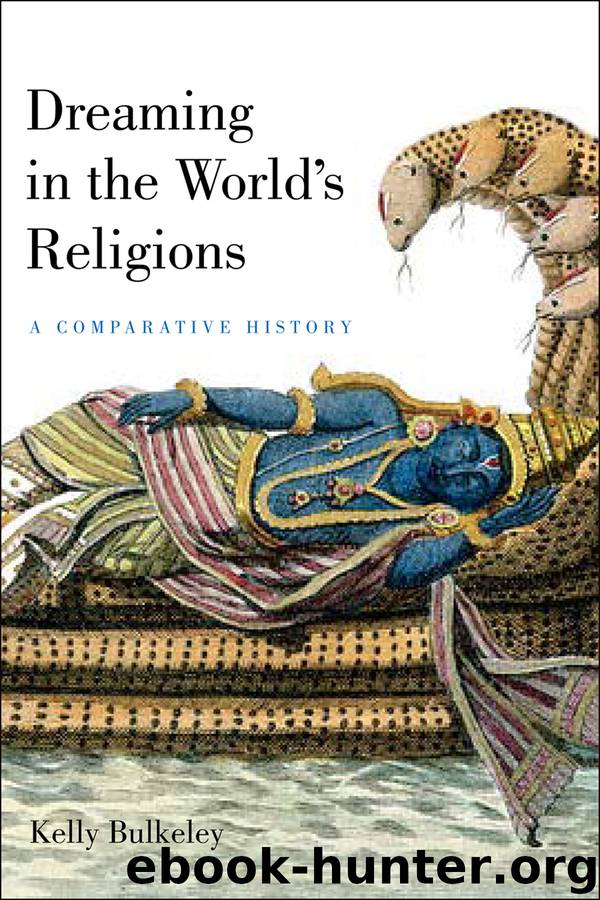Dreaming in the World's Religions by Kelly Bulkeley

Author:Kelly Bulkeley
Language: eng
Format: epub
Publisher: NYU Press
Published: 2008-04-05T04:00:00+00:00
Summary
Judging by their myths and epic poems, the ancient Greeks and Romans believed dreams were externally caused encounters with the gods. But a closer look at these mythic tales reveals a more sophisticated psychological understanding of the dreaming imagination. Once we take into account the writings of the philosophers, poets, and historians of Greece and Rome, we have to acknowledge a strong kinship between their dream theories and the theories of modern Western scientists. For the Greeks and Romans, a few dreams were accepted as genuine conduits of divine energy and religious experience, but most dream experiences had their origins in the natural processes of the sleeping mind. Many of the greatest philosophers dismissed dreaming as inferior to waking rationality, and they took little interest in exploring any of its possible functions or purposes. Nevertheless, dreams remained very popular over the centuries as a universally accessible source of divine guidance and prophetic knowledge. More important than prophecy, however, was the power of healing in dreams. The dream incubation rituals of Asclepius and the medical practices of Hippocrates and Galen all cultivated the healing resources of dreaming to an unprecedented degree of effectiveness. The interpretation of dreams in Greek and Roman cultures was believed to be a perilous affair, with dangerous consequences for those who misread the will of the gods. Hence the prominence of dream books and professional interpreters who were skilled in the process of translating dream images into waking meanings. Building on the wisdom of the Egyptians, Assyrians, and other Fertile Crescent cultures, the dream interpreters of Greece and Rome (best exemplified by Artemidorus) developed a systematic approach that relied on the interpreter’s “native intelligence,” common sense, and personal experience of the world. Such a simple and straightforward approach enabled anyone to practice dream interpretation, not just professional experts—planting a democratic seed in a realm of experience that would increasingly become constrained by religious authority.
Download
This site does not store any files on its server. We only index and link to content provided by other sites. Please contact the content providers to delete copyright contents if any and email us, we'll remove relevant links or contents immediately.
The Lost Art of Listening by Michael P. Nichols(6486)
Why I Am Not A Calvinist by Dr. Peter S. Ruckman(3776)
The Rosicrucians by Christopher McIntosh(3059)
Wicca: a guide for the solitary practitioner by Scott Cunningham(2712)
Signature in the Cell: DNA and the Evidence for Intelligent Design by Stephen C. Meyer(2507)
Real Sex by Lauren F. Winner(2483)
The Holy Spirit by Billy Graham(2430)
To Light a Sacred Flame by Silver RavenWolf(2360)
The End of Faith by Sam Harris(2299)
The Gnostic Gospels by Pagels Elaine(2035)
Nine Parts of Desire by Geraldine Brooks(2011)
Waking Up by Sam Harris(1965)
Heavens on Earth by Michael Shermer(1960)
Devil, The by Almond Philip C(1909)
Jesus by Paul Johnson(1895)
The God delusion by Richard Dawkins(1857)
Kundalini by Gopi Krishna(1830)
Chosen by God by R. C. Sproul(1768)
The Nature of Consciousness by Rupert Spira(1694)
